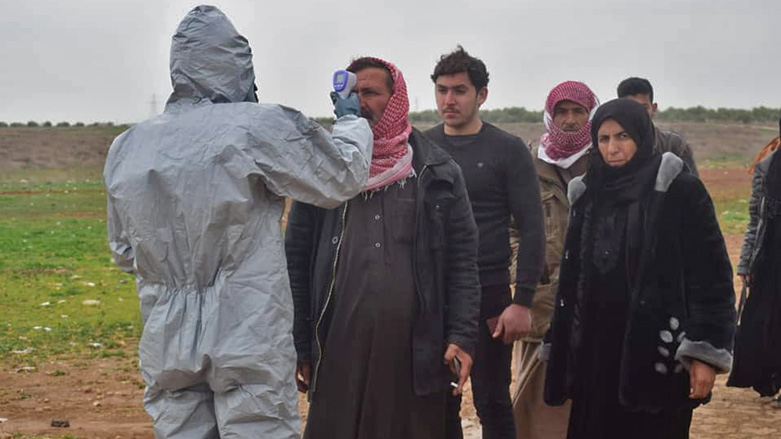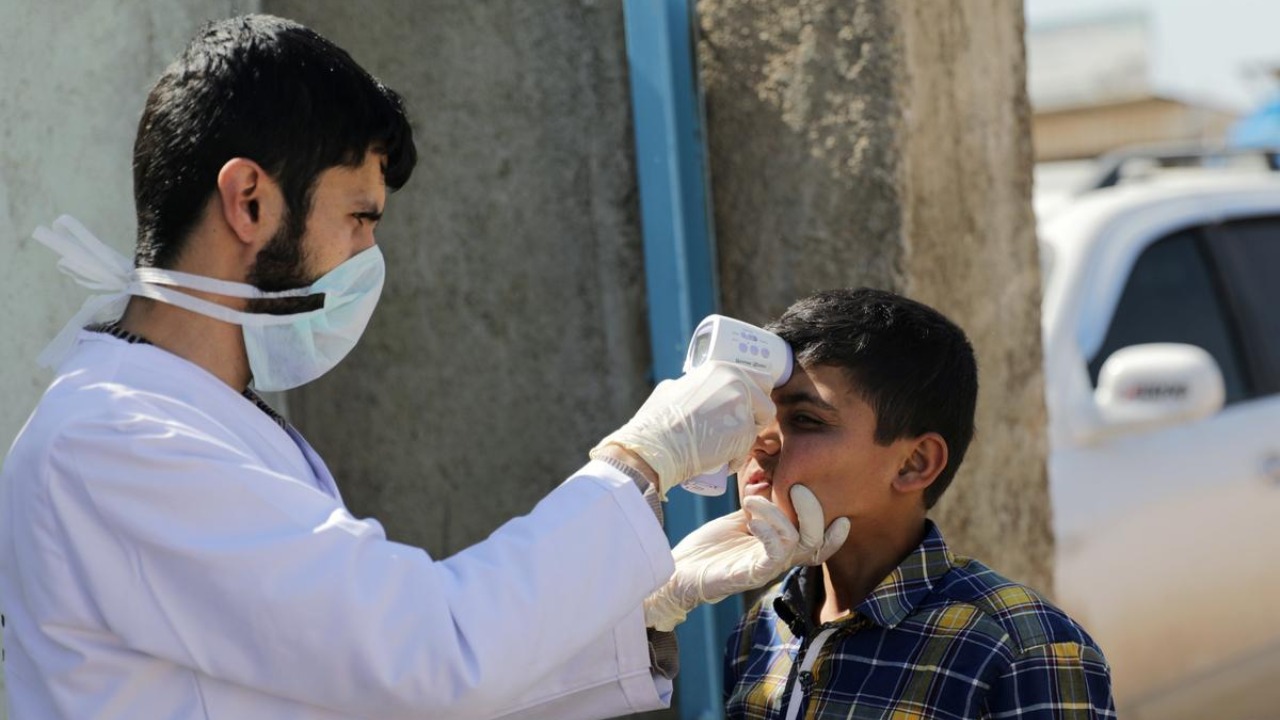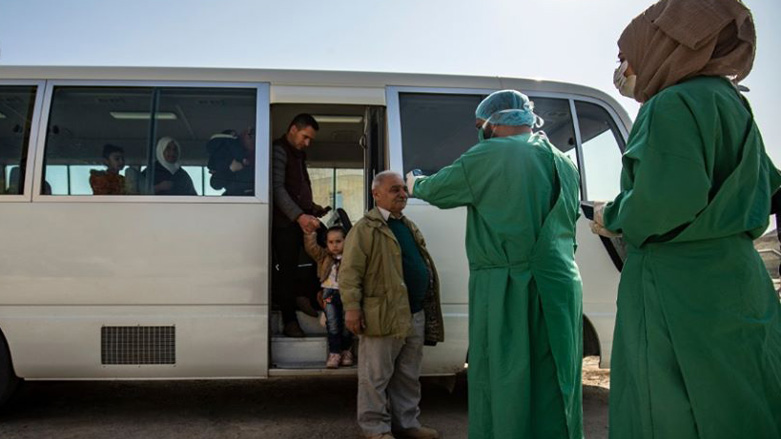Kurdish-led administration in northern Syria ill-prepared for coronavirus outbreak

ERBIL (Kurdistan 24) – The Kurdish-led Autonomous Administration of North and East of Syria (AANES) is poorly prepared for the coronavirus crisis due to an already overtaxed and fragile health system that has no testing facilities, according to international organizations and experts.
On Saturday, local authorities announced the closure of schools and the cancellation of public events due to the threat posed by the coronavirus. Since Feb. 26, the administration had already been restricting civilians recently in Europe from entering through the Semalka border crossing.
In the cities of Tabqa and in Manbij, those coming from outside AANES-controlled areas are also being checked by medical teams for symptoms before being permitted to enter and additional mobile teams are working to spread information about the virus and make recommendations aimed at curbing contagion.
Thomas McClure, a Syria-based researcher at the Rojava Information Center, told Kurdistan 24 that problems faced by many nations grappling with coronavirus are magnified tenfold for the administration in northern Syria.
“With the sole testing facility in Sere Kaniye (Ras al-Ain) put out of action by Turkey’s invasion and occupation of that city in 2019, the AANES has no option but to send test cases all the way to Damascus where the facilities exist,” he said. “This is scarcely possible in practice, with Damascus dragging its feet – only four people have been sent for testing in the last fortnight.”
The administration announced on Friday that there had been no reported cases of the virus in the region under their control.
Read More: Kurdish-led northern Syria says no coronavirus cases, implements countermeasures
According to a report published on Tuesday by the United Nations Office for the Coordination of Humanitarian Affairs (OCHA) in collaboration with the World Health Organization (WHO), the public health system in Syria is fragile due to ongoing conflicts and will require considerable support to reinforce its capacity to support any efforts to counter a potential outbreak of the virus.
“Overall, only 57 public hospitals (64 percent) are fully functioning in the country, and a considerable shortage of trained staff and a high turnover rate, all of which reduce its capacity to detect and manage cases,” read the report.
The WHO also suggests that Syria is at particularly high risk due to the large number of vulnerable civilians, such as refugees and internally displaced persons (IDPs), and large-scale population movements, including religious tourism.
Moreover, in the northeast, the situation has become even more difficult after Russia forced the UN Security Council to close the UN’s Yaroubiyeh border crossing operation that had previously supplied 40 percent of the medical provisions in the northeast.
Read More: Syrian Kurds criticize UN decision limiting humanitarian aid to Syria
According to the UN, the border crossing in the past enabled support to an estimated 1.4 million people in northeast Syria.
This leaves the local administration dependent on aid coming from Damascus.
“This means that little or nothing arrives to North and East Syria, home to hundreds of thousands of vulnerable people and IDPs – plus ISIS-linked individuals held in prisons and Hol Camp,” said McClure, the researcher.
It’s expected that it will take at least another week before a highly-anticipated delivery of basic medicines, masks, and sanitary supplies arrives in the autonomous region.
The Syrian government’s Ministry of Health is also preparing isolation and quarantine units in all six hubs where WHO has a presence, including Qamishli, located on the Turkish border.
“What can be done has been done, with quarantine in place, a state of emergency shutting down public events and mobile medical teams on the go,” McClure added.
“But with many people already dying in North and East Syria from preventable diseases due to the embargo enforced on the region, it is hard to expect anything other than a disaster as coronavirus sweeps through.”
The Syrian government has denied any cases of the novel coronavirus in their territories, despite reports suggesting otherwise.
Read More: Syrian government quiet amid coronavirus outbreak
According to the Syrian Observatory for Human Rights (SOHR), which cited local medical sources, there have been at least 62 people infected with the virus in the regime-controlled provinces of Damascus, Tartus, Lattakia, and Homs.
The local news website Deirezzor 24 claimed that one woman from Deir al-Zor died from the virus in the al-Assad hospital last Friday.
Infections are suspected to have been brought over by Iranian military personnel who had returned to Syria after trips to their home country, now the epicenter of the coronavirus outbreak in the Middle East and its primary regional exporter.
There have been also unconfirmed reports of cases in Abu Kamal, also in Deir al-Zor province, where Iranian-backed militias are active.
Editing by John J. Catherine


